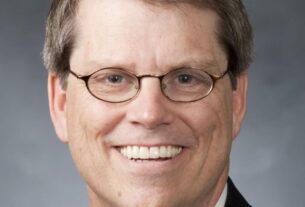Erika Harold, a litigation attorney, former Illinois political candidate, and former Miss America, has been named the new executive director of the Illinois Commission on Professionalism (popularly known as 2Civility) effective April 11, succeeding long-time executive director Jayne Reardon, who retires at the end of this month, the Illinois Supreme Court announced today.
A commercial litigation attorney with the firm Meyer Capel P.C. Champaign, Ill., Harold was a 2014 Republican primary candidate for Illinois’ 13th Congressional District and the 2018 Republican nominee for Illinois attorney general. She was Miss Illinois 2002 and Miss America 2003.
She had been a commissioner of the Commission on Professionalism since 2017 and has served on its executive committee. Since 2015, she has served on the Illinois Supreme Court Committee on Equality.
Harold has taught students about the U.S. legal system as part of the Lawyers in the Classroom program, coached students in city-wide mock trial competitions and served on the teaching faculty of Harvard Law School’s Trial Advocacy Workshop.
She is also a widely recognized advocate of bullying prevention efforts and has spoken to more than 100,000 students about combating peer-to-peer harassment.
At Harvard Law School, from which she graduated in 2007, she won a Boykin C. Wright Memorial Award for appellate advocacy in the Ames Moot Court Competition. She funded her legal education through the scholarships and appearance fees she earned as Miss
America.
“Erika Harold is a leader in legal professionalism and has played a significant role in guiding the Commission’s educational programming and communications strategy,” said Justice Mary Jane Theis, Supreme Court liaison to the Commission on Professionalism. “She will build upon the strong foundation laid by Jayne Reardon and continue to embrace novel educational practices that promote civil, effective and equitable legal and judicial systems.”
Reardon Retiring
Current executive director Jayne Reardon announced in December that she would retire in April. She joined the commission as deputy director in 2006 and was appointed executive director in 2009.
Her leadership helped develop the commission into becoming a national leader in promoting professionalism, innovation, mentoring and diversity in the legal profession.
She developed the brought innovation to Illinois lawyers through the Commission’s annual The Future Is Now: Legal Services conference. Launched in 2016, the conference was one of the first in the state to explore future law, or trends that are impacting the trajectory of the legal profession. In 2021, the conference attracted almost 700 attendees from across the nation and even drew international attendees.
Among her other accomplishments were to begin coordinating Jumpstart, a law school preparatory program for traditionally underrepresented law students that is now offered by nearly all Illinois law schools.
She also led a study and recommendation for mandated CLE in diversity and inclusion and mental health and substance abuse, which was adopted by the Illinois Supreme Court. This has resulted in an increase of more than 270% and 130%, respectively, in CLE offerings in both areas in the four years since the rule change, compared to the previous four years.
Reardon directed the development of the commission’s digital media platforms, which include an active blog, social media, and email newsletters. This includes the Reimagining Law YouTube series, which explores how lawyers are adapting the delivery of services through discussions with legal industry thought leaders.
Under Illinois Supreme Court Rule 799, the commission is charged with the mission of promoting greater integrity, professionalism, and civility within the legal profession; fostering a commitment to the elimination of bias and divisiveness within the legal and judicial systems; and ensuring those systems provide equitable, efficient and effective service to the citizens of Illinois.


